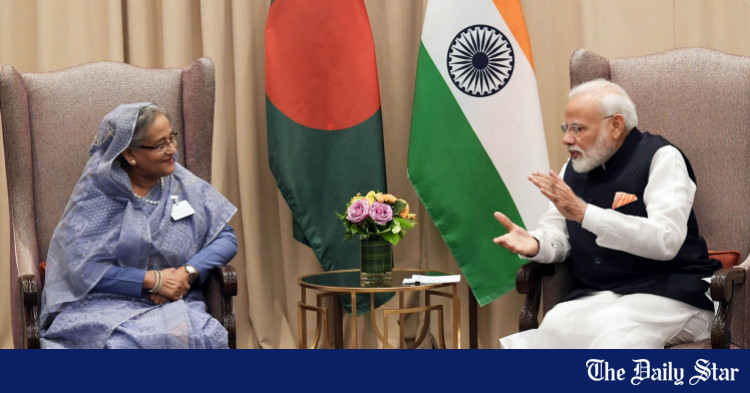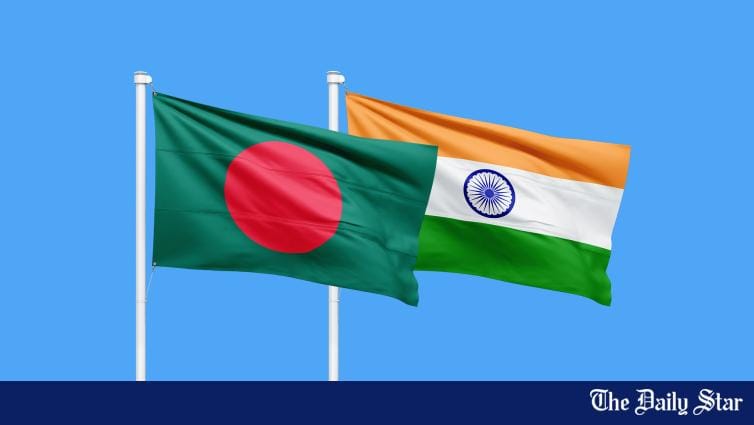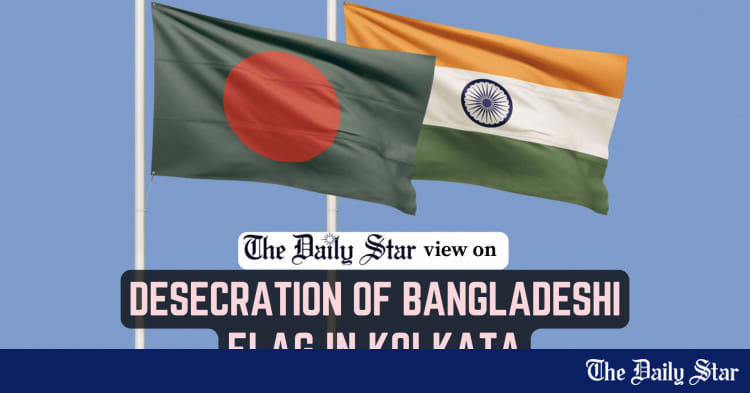Bengali language is used in Bangladesh section. Why are you objecting?
This is an international forum.
Kindly adhere to the rules.
Bangla videos or articles without an English translation are NOT allowed.
Follow along with the video below to see how to install our site as a web app on your home screen.

Note: this_feature_currently_requires_accessing_site_using_safari
Bengali language is used in Bangladesh section. Why are you objecting?












Dhaka slams desecration of nat’l flag in Kolkata
The government yesterday strongly condemned the desecration of Bangladesh’s national flag and the burning of Chief Adviser Prof Muhammad Yunus’s effigy in Kolkata as “deplorable acts”.www.thedailystar.net
Dhaka slams desecration of nat’l flag in Kolkata
Decries violent protest outside its mission
View attachment 11142
The government yesterday strongly condemned the desecration of Bangladesh's national flag and the burning of Chief Adviser Prof Muhammad Yunus's effigy in Kolkata as "deplorable acts".
The foreign ministry in a statement decried the violent protests outside the Deputy High Commission of Bangladesh in the West Bengal capital.
Expressing "deep concern" over the incident, the ministry called upon the Indian government to take necessary measures to prevent such occurrences.
It also urged New Delhi to ensure the safety and security of all the diplomatic missions of Bangladesh in India as well as its diplomats and non-diplomatic members of staff.
A large group of protesters participated in the demonstration in the evening, organised by a Kolkata-based Hindu organisation "Bongio Hindu Jagran".
The protest turned violent as the demonstrators broke through police barricades and reached the boundaries of the Bangladesh Deputy High Commission, according to the foreign ministry statement.
"They set fire to the national flag of Bangladesh and burned the effigy of the Hon'ble Chief Adviser of the Government of Bangladesh," the statement said.
Although the situation seems to be under control at the moment, there is a prevailing sense of insecurity among all the members of the Deputy High Commission, it added.






Loading...